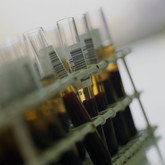Biosimilars/Research
Are regulatory and scientific reporting biosimilar QAs consistent and complimentary?
Questions have been raised regarding the consistency and complementarity of reporting biosimilar quality attributes between regulatory and scientific communities. For the first time, a study published in Biologicals [1] has found that while the reporting of quality attributes (QAs) by these two sources lacks consistency, overall, they do complement one another.
Role of European patient associations when informing patients about biosimilars
Biosimilars contribute to more sustainable healthcare systems by generating competition in the off-patent biologicals market. The extent to which the benefits of competition in the marketplace are exploited depends, of course, on their use in clinical practice. One of the factors determining adoption in clinical practice is the acceptance by healthcare providers (HCP) and patients. Often, a lack of acceptance comes down to shortcomings in knowledge and understanding about biosimilars. Educating patients about biosimilars is therefore considered as one of the key elements for a successful market for off-patent biologicals and biosimilars.
Cost-savings from higher biosimilar uptake and more appropriate use of ESAs
Chronic kidney disease (CKD) is a growing public health issue worldwide. In Italy, the prevalence of CKD is 7.5% in men and 6.5% in women [1]. In Italy, the annual direct costs of management for patients on dialysis were estimated to be around €30,000 for peritoneal dialysis and €44,000 for haemodialysis [2]. Erythropoiesis-stimulating agents (ESAs) have a significant economic burden in CKD as they are widely used to treat CKD-related anaemia; biosimilars can guarantee a 20%–30% saving on ESA purchase costs in CKD patients [3].
Biosimilars for skin conditions safe and effective
Two recently published articles [1, 2] assessing the use of biosimilars for the long-term skin conditions psoriasis and hidradenitis suppurativa indicate that biosimilar treatments are equally as effective as the originator, demonstrating similar drug retention and clinical response rates, respectively.
Study supports advanced IV preparation and storage of ABP 215
The first approved bevacizumab biosimilar, ABP 215 (Mvasi), can be prepared in bag, over a month prior to being used to treat patients via intravenous (IV) infusion, shows a study published in GaBI Journal [1]. The study reveals that ABP 215 retains physicochemical stability after dilution and storage, which can ease the process of drug administration in clinical settings.
A positive outlook for the US biosimilars market
The US is keeping pace with the European pioneers of biosimilars approvals, reveals an article published in GaBI Journal [1].
Expanding access to trastuzumab biological treatments
The anti-human epidermal growth factor receptor 2 (HER2) monoclonal antibody trastuzumab is indicated for treatment of HER2-positive early breast cancer (EBC), metastatic breast cancer (MBC) and metastatic gastric cancer (MGC). Often used in conjunction with chemotherapy, trastuzumab was originally approved as an intravenous (IV) formulation. Subcutaneous (SC) formulations were more recently approved for HER2-positive breast cancer in 2013 (Europe) [1] and 2019 (US) [2].
CADTH summarizes evidence on switching to etanercept biosimilars
The Canadian Coordinating Office for Health Technology Assessment (CCOHTA), known today as CADTH, is an independent, not-for-profit organization responsible for providing Canada’s healthcare decision-makers with objective evidence to help make informed decisions about the optimal use of drugs and medical devices in our healthcare system.
Relieving the economic burden on EU healthcare budgets: spotlight on IV trastuzumab and rituximab biosimilars
In an ageing society with increasing medical need, biological treatments have played a key role in reforming the management of cancer, autoimmune and certain preventable diseases. Yet, biological treatments impose a significant financial burden on the healthcare system and healthcare payers.
Characteristics associated with biosimilar use in Medicare recipients
What patient, physician and practice characteristics are associated with biosimilar usage for the biologicals filgrastim and infliximab was a question asked by researchers from the US [1].












